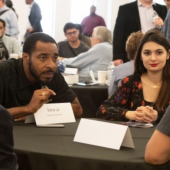
Abstract: A course in sustainability was implemented at the University of Houston-Downtown (UHD). The course was open to all students at UHD with a goal of teaching sustainability as the complex interaction of multiple fields (economics, social science and environmental science). UHD’s Center for Public Deliberation (CPD) was interested in applying the concepts of public deliberation into courses outside of communication. For effective public deliberation, students need to learn the skills of soliciting and incorporating diverse opinions as a pre-requisite of working together toward a solution. Many students attracted to sustainability, including science and technology majors, do not realize that most problems of sustainability are not merely technical problems but problems that arise from conflicting ethical frameworks. Students outside of public deliberation rarely have an opportunity to practice engaging in the tools that will be critical for them to develop solutions within the complexity of current social systems. We review the value of public deliberation in higher education and the logistics of bringing public deliberation into a sustainability course. We summarize the logistics of the collaboration with a focus on deliberation, planning and action in a semester-long group projects with a focus on creating healthier communities. We report on the impacts of both the communication and science faculty and the survey data from students. Finally, we discuss the value of such a collaboration in sustainability education.
Continue Reading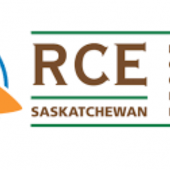
Abstract: Three decades ago Julius Nyerere (1990) wrote Challenge to the South. In response to the legacy of colonialism, Nyerere challenged the nations of the Global South to advance their development and to free their people. These concerns are as relevant today as they were in the 1990s. Established for the United Nations Decade of Education Sustainable Development in 2005, there are now over 175 Regional Centres of Expertise (RCEs) on Education for sustainable Development (ESD). This paper offers a case study of RCEs worldwide with a particular focus on challenges, and responses, including a focus on the select Sustainable Development Goals (SDGs) of poverty and health. Further, an account is given of RCEs which have attended to the recognition of Indigenous and traditional ways of knowing.
Continue Reading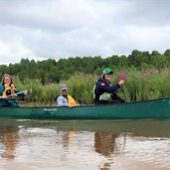
Continued implementation of conventional professional development strategies will likely fall short of the innovations needed to prepare teachers to fully engage in and implement environmental and sustainability education. The Rivers2Lake education program based in Superior, Wisconsin, USA illustrates a transformational approach to teacher professional development. We examine the program as a working example of three UNESCO learning processes that have been identified as aligning with and contributing to education for sustainability (Tilbury, 2011): collaboration and dialogue; engaging the whole system; and active and participatory learning. Through a review of these processes, the article offers considerations for innovating teacher professional learning for environmental and sustainability education. Key recommendations include shifting from isolated professional development events to ongoing professional learning as well as further investigation of the specific mechanisms that drive each of the UNESCO learning processes.
Continue Reading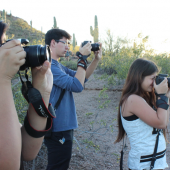
Abstract: Recognizing that most modern students have access to smartphones equipped with multi-media capture capability, this article explores how sustainability education must include digital media literacy in 21st Century learning. Through the lens of a sustainability and media teacher, the article analyzes literature from the fields of digital media literacy, 21st century skills, and sustainability education. The author ties together theoretical and practical methods of how embracing digital media when teaching sustainability can enhance student learning and sharing of sustainability knowledge. With references to emerging trends, critiques, and challenges to media technology adoption in sustainability education settings, the author outlines several techniques to empower teachers and students to incorporate technology they already use daily, and share their work with greater audiences to engage communities beyond the classroom.
Continue Reading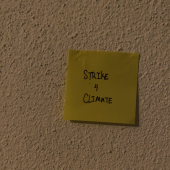
Abstract: This editorial discusses the intersection of environmental and racial justice and how the movement has failed to center voices most affected by climate change.
Continue Reading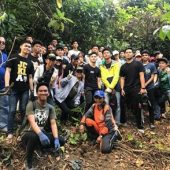
Universally, trees have been an important part of urban landscapes for millennia since they offer adequate benefits to humanity. Studies highlighted the positive impacts of biodiversity conservation in the students’ academic performance but there is still lack of literature pertaining to its role on the promotion of environmental education in the Philippines. On this note, this study aimed to analyze the Filipino senior high school students’ perceptions and experiences on participating in a tree planting activity, identify the implications of tree planting activity in studying Earth and Life Sciences, and explore the perceived constraints and opportunities. The study design is descriptive-qualitative in nature. Based on the qualitative data analysis, five themes have emerged such as: (1) simple yet beneficial; (2) opportunities and constraints; (3) practical application of learning; (4) environmental awareness promotion; and (5) mitigating environmental degradation. In conclusion, tree planting activity as a part of the field study program in schools is one of the most effective ways to combat and slow down the effect of global warming while promoting the students’ academic interests. This study also highlighted the positive impact of tree planting by improving the Filipino students’ perceptions of life, community, and environment which is the goal of 21st century education. Lastly, the study recommends the development of extension programs to school communities in the Philippines and worldwide that will arouse the interests and participations of the students to tree planting activity, gardening and ecological tours by partnering with relevant organizations and agencies.
Continue Reading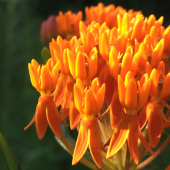
The relationship with nature and pro-environmental behaviors of community college students in introductory environmental biology courses were assessed using psychometric instruments and environmentally-themed Likert-based statements. Post-class, students demonstrated an increase in level of concern for non-human species and viewed themselves as closer to nature. Students’ motivation for environmental concern for other people or themselves was not affected by completion of the course. As a result of the class, students demonstrated increased levels of pro-environmental behavior, such as thinking about the environment, recycling, and energy and water conservation. Changes in relationship with nature and pro-environmental behavior were moderated by professor, suggesting that the professor’s teaching style and attitude may influence students’ views and attitudes. Neither gender, age, student status (full- or part-time), nor type of class (with lab or without lab) influenced students’ relationship with nature or pro-environmental behaviors. Substantially increasing the personal responsibility and degree of interaction with course content, as reflected by the comparison of an honors section to regular sections, did not result in significant changes in either relationship with nature or pro-environmental behavior. Applications to course instruction and environmental education at large are discussed.
Continue Reading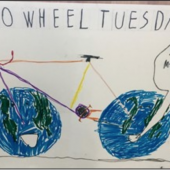
Sustainability education has changed identities a number of times over the last decades. How might whole-school sustainability (WSS) prepare students to address current global issues? A focus on teaching the Sustainable Development Goals (SDGs) creates opportunities for students to develop systems thinking and to learn to take civic action. We visited four schools in the United States to observe and document replicable models of K-12 WSS. In our research, we used a mixed methods approach to code data from interviews, classroom observations, and school campus tours. Results from a case study analysis of four K-12 schools map out pathways toward implementing and refining WSS education programs to include the SDGs, systems thinking, and civic action.
Continue Reading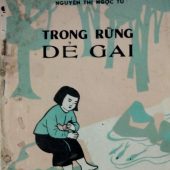
As the future of human development increasingly hinges on the need for sustainable education, this essay re-examines the imminent threats to humankind and the relevance of achieving the United Nations’ Sustainable Development Goals (SDGs) to the engagement with sustainability science among today’s young scientists. It also discusses some socio-political and economic challenges to achieving sustainability and argues that developing sustainability science is difficult but not impossible. The hope lies in our current efforts to build productive and creative scientific communities through nurturing youth engagement with science via multiple channels such as children’s literature and science communication.
Continue Reading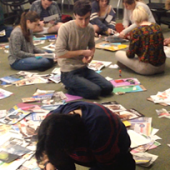
Standardized, assembly-line models of education have created significant momentum for unsustainable classroom situations. Classes are sustained throughout the term using ranking systems and proof of outcomes such as grading and reporting on content knowledge acquired. There is a clear ending in sight. Both students and instructors are often bound to this ending, often feeling a deep sense of relief at the end of each class session. As sustainability educators, we have become conscious that industrialized methods of education no longer serve societies re-envisioning ways of sustaining themselves. Sustainability Education necessitates sustainable classrooms – spaces that are alive, adaptive, and open to innovation. We explore design principles that can support sustainable classrooms, focusing on creativity, humanity, horizontality, and compassionate facilitation. We share examples of creative learning tools used in a 300-level Sustainability classroom in Arizona State University. Data collected through student interviews and journaling are woven throughout the article to ground our viewpoints with practical insight.
Continue Reading
Abstract: While passionate, project-based, and place-based education may sound like a stream of buzz-phrases or fads in education at face-value, this article uncovers their impact on student engagement and academic proficiency. While they are not textbook, traditional, pedagogical approaches, they are esteemed in the field of Education as undeniably effective and worth teachers’ consideration. This article discusses the impactful aspects of a.) passionate teaching, b.) project-based learning (PBL), and c.) place-based education (PBE). A former fifth-grade teacher’s experience in creating and implementing a curriculum titled, “Farm-to-Table,” contextualizes the power of passionate teaching, PBL, and PBE when used simultaneously. The article concludes with special considerations for other teachers that warrant attention before they start planning their own passionate, PBL, and PBE curriculum.
Continue Reading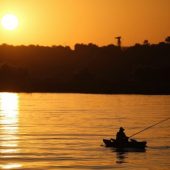
Abstract: This paper describes the outcomes of a game designed to teach advanced leadership skills, specifically influence and negotiation strategies, to current and aspiring sustainability professionals at Virginia Tech’s Center for Leadership in Global Sustainability. In the game, students assume the role of a key stakeholder and practice principle-based negotiation, conflict management, consensus building, and related influence skills needed by professionals working on complex sustainable development challenges such as the transboundary resource issues
regarding hydropower and watershed management. We collected pre- and post- survey data to assess the effectiveness of the simulation in developing students’ negotiation and influence skills. Results suggest that the training helps students develop confidence in using influence and negotiation skills and feel more competent and better prepared to serve as leaders in the field.
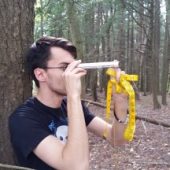
Abstract: Predicted changes in climate have generated interest in strategies to mitigate emissions of greenhouse gases and increase education on the topic. Our study involved an instructor-led team of 19 biology undergraduate students that aimed to quantify tree carbon sequestered on 67 hectares of a university campus forest near Utica, New York, and estimate its monetary value as a carbon offset. We identified individual hardwood and conifer trees and measured diameter at breast height (DBH) of 343 trees within fifteen 0.04-hectare sample plots during a 3-week period. We estimated total campus forest carbon to be 7,678 Mg and annual sequestration to be 82 Mg C/year. We also found additional educational value of this voluntary field research project beyond traditional ecology field exercises. Campus managers could choose to count sequestered carbon as an offset to annual CO2 emissions from campus operations. Although our campus is not eligible to sell the accumulated carbon, we calculated a one-time offset to be worth $143,397 on the voluntary carbon trading market. Future studies could benefit from the efficient sampling methodology we used to quantify carbon contained in large forest areas and increased student learning from project-based field exercises.
Continue Reading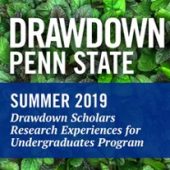
Abstract: Podcasts are increasing in popularity as an educational tool in recent years, but there remains a lack of podcasts that focus on climate change. The goal of this project was to create a series of audio files that address global warming solutions in the state of Pennsylvania, with each episode based upon a drawdown solution. Project Drawdown is a nonprofit organization that models how to reach “drawdown”— the future point in time when levels of greenhouse gases in the atmosphere stop climbing and start to steadily decline. This audio collection contains new and original podcasts addressing each Project Drawdown sector of global warming solutions, such as materials and waste, electricity generation, and land use. To highlight efforts in Pennsylvania, thirteen interviews were conducted with scientists, journalists, and professionals from organizations across the state, such as Feeding Pennsylvania, Southeastern Pennsylvania Transportation Authority (SEPTA), Philadelphia Green Roofs, StateImpact Pennsylvania, and Land Air Water Legal Solutions. Named Drawing Down in Pennsylvania, the podcast collection starts with an introductory episode, then eight episodes each corresponding with one of the Project Drawdown sectors, and wraps up with two additional episodes – one titled “Hope” with messages of optimism towards achieving warming solutions from the interviewees, and a special episode that focuses on The Pennsylvania State University and its efforts toward to drawdown. The audio collection is published online, together with corresponding transcripts and supplemental materials. It is hoped that these podcasts will help inform Pennsylvania residents to make choices and to take action for a sustainable future. For residents outside of Pennsylvania, these drawdown efforts can be applied to different populations and regions. The entire podcast series can be accessed at: https://sites.psu.edu/drawingdownpa/ and is suitable for middle school through college classrooms as well as general audiences.
Continue Reading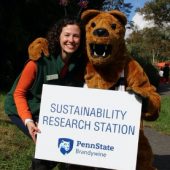
Abstract: In Fall 2017, Penn State Brandywine kicked off an initiative titled Sustainovation, emphasizing programming and community collaborations through sustainability and innovation. The campus identified Tyler Arboretum as a community partner to work with to assist in advancing their education and outreach goals. Students from across the campus came together at the beginning of the semester for an initial meeting to be introduced to the United Nations Sustainable Development Goals (SDGs), to meet the community partner and to hear about the semester project of adding sustainability education to the arboretum’s fall festival Pumpkin Days. In addition, a validated survey from Biasutti & Frate (2017) was given to the students to define their attitudes towards sustainable development before working with this partner and the project. The survey addresses four sustainability constructs of Environment, Economy, Society, and Education. At the end of the semester, the same survey was given to student participants in this Sustainovation project for Tyler Arboretum. Aggregate data show that there is a statistically significant difference in student attitudes at a minimum 90% confidence level (t-test) for eight of the twenty survey statements in the constructs of Environment, Economy, and Society.
Continue Reading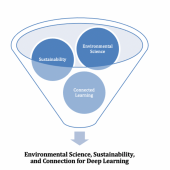
This comparative case study of teaching and learning experience explores connected learning design principles to improve engagement in higher education and weave sustainability practice into introductory environmental science curriculum through the integration of community, place, peer support, networking, and technology. For this study teaching and learning took place in multiple settings, online and in a brick-and-mortar classroom, and in students’ communities. We set out to ask: In what ways might the implementation of connected learning principles be used to improve engagement and weave sustainability into environmental science curriculum, broaden interest in science literacy, and encourage community action in introductory higher education courses? Comparative analysis and collaborative autoethnography methodologies were utilized to compare professor experiences for analysis and synthesis of patterns. Findings suggest that connected learning curriculum can broaden access to science, improve engagement, and help weave sustainability into a variety of courses by presenting students with relevant applied opportunities, connections and critical thinking about place and community, peer support and intergenerational connections, networking, and technology. Students can also gain a sense of agency and career relevance especially important to students who might otherwise feel they cannot “do science” or make a difference in a changing world. Lastly, this approach can improve instructors’ teaching experiences by relieving time and content constraints to incorporating sustainability into other course subjects as students submit more interesting passion-driven work, and are encouraged to network with and learn from individuals (family, community, and scientists) outside the classroom they may not have otherwise sought out.
Continue Reading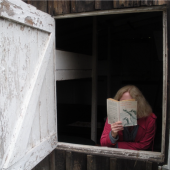
Abstract: Aldo Leopold’s classic essay, “Thinking Like a Mountain,” has been a touchstone of environmental ethics and sustainability education for over seventy years and continues to challenge and inspire wildlife ecology undergraduate students, and many more. But has it lost some power in the face of mounting evidence of accelerating damage and growing threats to the natural world, threatening biodiversity and human society on a global scale? Students and others now need another Leopold story, one that encapsulates an environmental ethic with a call for urgent action, a metaphor that urges not just change, but rapid transformation.
Continue Reading